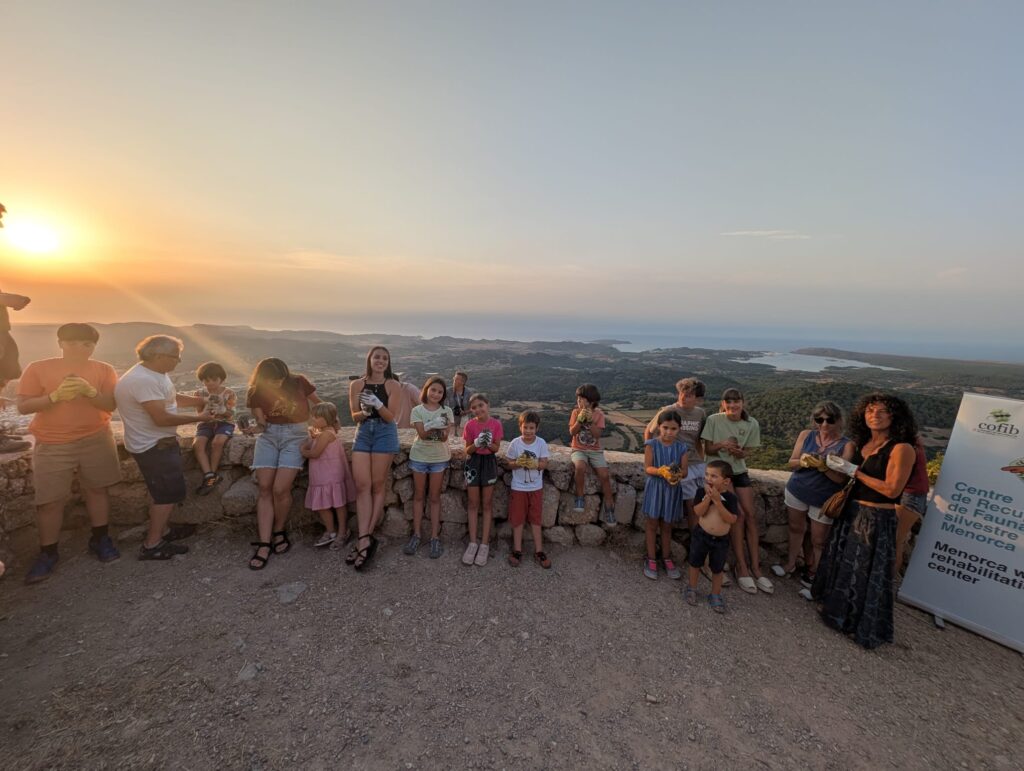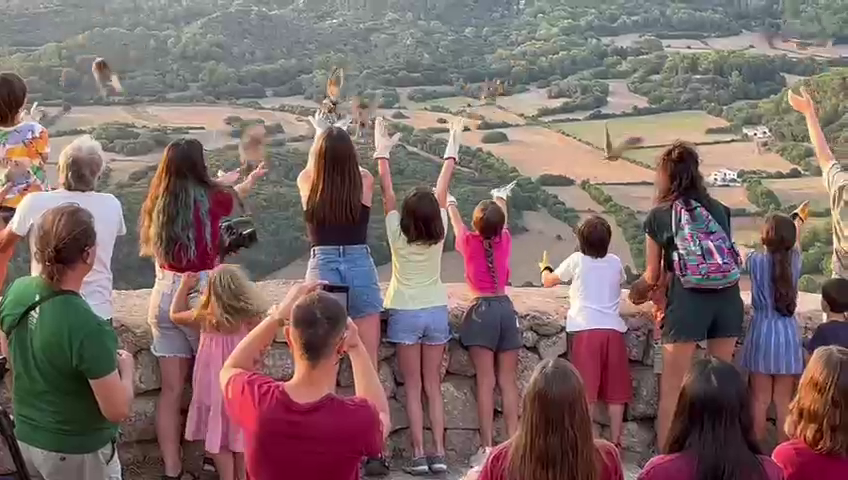Views: 1195
Past Wednesday, August 6, the Wildlife Recovery Centre in Ciutadella carried out the release of a group of owls. These animals have been under the care of the Centre for weeks, as they are chicks that arrived during the breeding season. Through this event, we wish to publicly express our gratitude for the collaboration of the public and all the volunteers who have protected, transported, or dedicated their time to feeding these animals, as well as the technical staff of the Consortium for the Protection of Wildlife in the Balearic Islands (COFIB).
Spring and early summer are when most birds build nests and raise their young. Species that live in towns often face the problem that chicks, once a bit grown and ready to leave the nest, end up in dangerous places such as streets or courtyards with dogs or cats. If these fledglings are not collected and brought to the Recovery Centre, their chances of survival are very low.

The species most affected are: house sparrows, swifts, and scops owls, but also greenfinches, goldfinches, blackbirds, barn owls, and kestrels. This year, 25 scops owl chicks have been admitted to the Centre, 13 of which were released together on Mount Toro, in an event to thank those who helped collect and raise these chicks—and also those who, throughout the year, carry out many other volunteer tasks that keep the Recovery Centre in action.
The scops owl (Otus scops), known as mussol in Catalan and autillo in Spanish, is the smallest of our nocturnal birds of prey. It is stealthy thanks to its silent flight and its plumage offers excellent camouflage. This helps it hunt at night, feeding on insects and small mammals.
It lives year-round in our towns, as well as in scrublands and agricultural areas, although during spring and summer its population is reinforced by individuals arriving from Africa. It breeds in a variety of habitats, using tree holes, old walls, or abandoned nests made by other birds.
The Wildlife Recovery Centre is located within the Lithica quarries (Pedreres de s’Hostal). During the summer, it can be visited Monday to Saturday from 6 p.m. until sunset. The Centre operates thanks to an agreement between GOB Menorca and COFIB, the entity responsible for the recovery of wildlife in the Balearic Islands, with direct support from the Regional Ministry of Agriculture, Fisheries and Natural Environment.
It also receives help from the Island Council, through the Menorca Biosphere Reserve Agency, and from the municipalities of Ciutadella, Maó, Es Mercadal, Ferreries and Es Castell, as well as from the Menorca Preservation Foundation.
Following yesterday’s release, during these summer nights we may now hear more of the typical scops owl call — a good indicator of the health of our wildlife.


